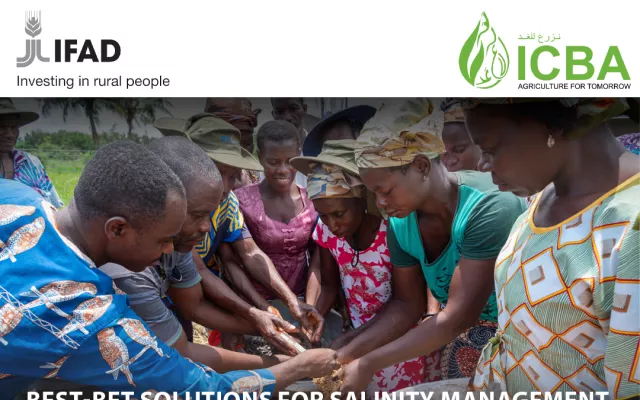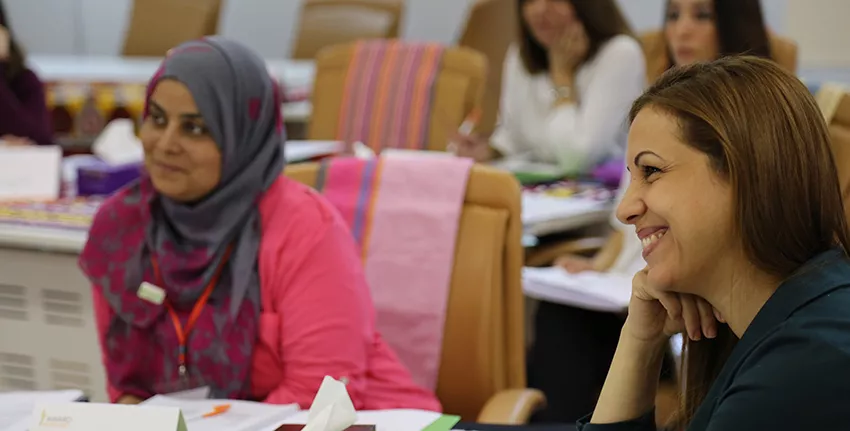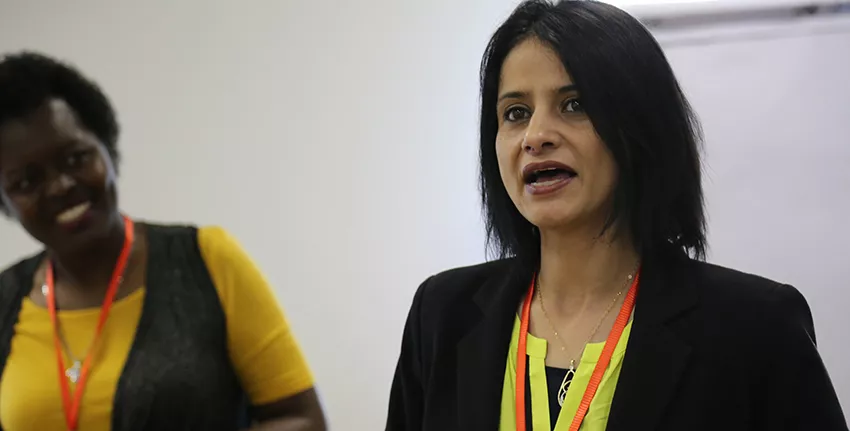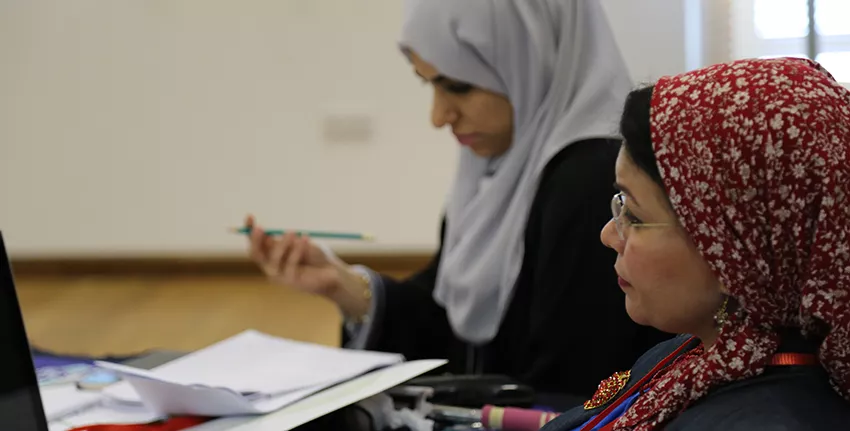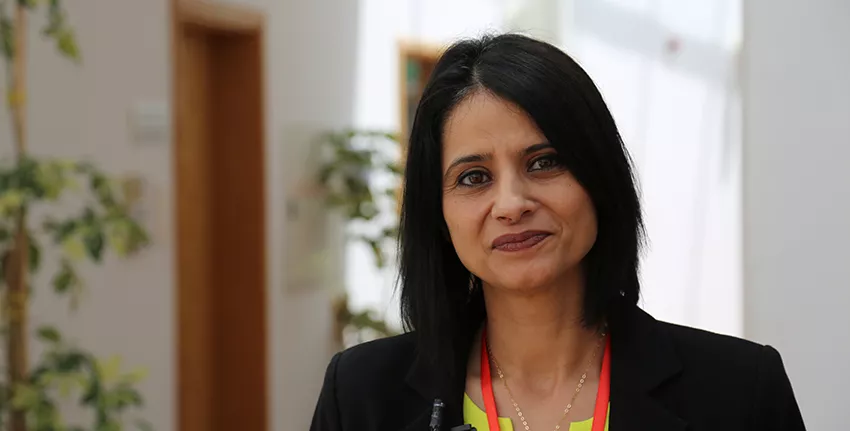ICBA partners with Gates Foundation and Islamic Development Bank to pilot pioneering leadership program for Arab women scientists
2 May 2017
The International Center for Biosaline Agriculture (ICBA) has joined forces with the Bill & Melinda Gates Foundation and the Islamic Development Bank (IsDB) to pilot a novel leadership program for Arab women scientists in the Middle East and North Africa (MENA) region.
Targeting Algeria, Egypt, Jordan, Lebanon, Morocco, Oman, Palestine, Tunisia and the UAE, Tamkeen is an initiative focused on addressing a wide range of challenges facing Arab women scientists, and empowering them to become future leaders in science.
As the first event under this program, ICBA hosted a seminal training course for a group of researchers at its head office in Dubai, UAE, on 23-27 April.
Delivered in partnership with the African Women in Agriculture Research and Development (AWARD) program, the course brought together participants from Algeria, Egypt, Jordan, Lebanon, Morocco, Oman and Palestine. It helped to equip them with knowledge to enhance their leadership skills and act as change agents within their institutions and communities.
Opening the course, Dr. Ismahane Elouafi, Director General of ICBA, said: “I am extremely happy that ICBA is successfully hosting the first-ever pilot training course under Tamkeen, on which I would like to congratulate each participant and the organizers. Arab women researchers need to have more opportunities to improve their scientific and leadership skills, and network with their peers around the world. Through Tamkeen, I am confident that ICBA along with its partners will be able to help Arab women scientists to identify their strengths and become successful leaders in science.”
Highlighting the importance of investing in women’s empowerment in research, Zahira El Marzouki, Program Officer at the Bill & Melinda Gates Foundation, said: “This pilot training course represents a significant milestone in our partnership with ICBA and IsDB to support Arab women scientists to become tomorrow’s leaders in agriculture research and find solutions to some of the region’s biggest food security challenges. The caliber of the participants is extremely impressive, and we look forward to continuing our relationship with them as they progress through their careers.”
“IsDB’s approach to development is ensuring capacity development for the citizens of our member countries. By building the capacity of Arab women scientists, we are putting the right pillars for the development of our societies. This initiative will go a long way in supporting Arab women researchers to be more productive, innovative and contribute to the development of their countries,” said Mr. Zaher Rebai, IsDB’s Director, Capacity Development Department.
Ms. Pauline Bomett, Senior Manager, Leadership and Training, AWARD, said: “Leadership training is an area that no institution desiring growth and sustainability can afford to ignore. There is a need to intentionally prepare entry-, middle- and senior-level professionals for roles that could impact the choices and decisions made by the institutions and, indeed, entire regions. Equally, as more women take up senior positions in agricultural research and development institutions, there is a need to help them start to make an impact as soon as possible.”
Speaking of the challenges faced by Arab women scientists, Ms. Heba Al Faris, a participant who heads the Department of Plant Production and Protection at An-Najah National University in Palestine, said: “Around 70 percent of the women in my country are involved in agricultural work, but you can hardly see them in leadership roles. In the scientific field, one of the main challenges faced by Arab women scientists is fundraising for their research projects. Due to their limited roles as leaders, they often feel isolated and are hardly seen as leaders or the principal investigators for a research project. To be a successful leader, a woman scientist needs to be provided with funds, tools and good research skills.”
Ms. Lamiae Ghouti, another participant from the Institut Agronomique et Vétérinaire Hassan II in Morocco, added: “It is good that more and more women are now getting educated in the Arab countries, but at the same time the fact is that most of these women are not seen in leadership positions. The key development for our countries is to make good use of this great human resource ― women. They are capable, competent, and can contribute actively and effectively towards the economic and political development of Arab countries.”
ICBA developed Tamkeen in 2016 with support from the Bill & Melinda Gates Foundation and the IsDB. The program aims to contribute to the UN Sustainable Development Goal on gender equality and women’s empowerment by building and enhancing the capacities of a new generation of Arab women scientists and leaders. It will facilitate knowledge exchange and networking among women scientists throughout the MENA region by empowering groups of gender champions and building a critical mass of advocates for leadership of women in science and agriculture, ultimately contributing to better solutions for improved food security and nutrition.







